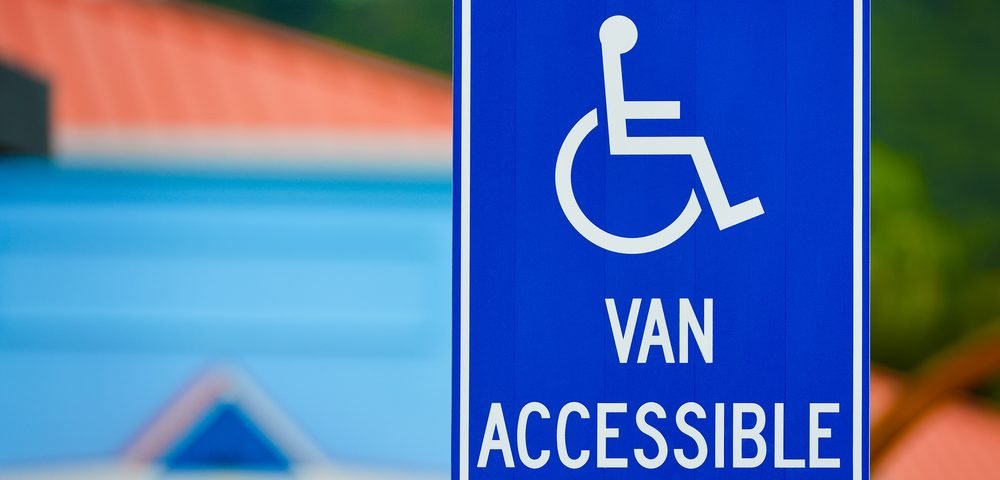Inaccessibility Makes Life Difficult
Written by |

It’s easy to forget how inaccessible the world is, especially when you’ve spent the last week and a half scrolling through social media feeds and catching up on sleep. Even when I was in Indiana, surrounded by people who were smarter than me, I found myself forgetting what it’s like to live in a world that was built to keep people like me sedentary, idle.
A few days ago, I had to run some errands and found myself driving all over town. My family recently hired new personal care assistants (PCAs) and we have been training them for the past week, so my life has really just been a procession of noticing things I tend to overlook. How often my neck cracks. How difficult it is to get my shirt over my head with my hair as long as it is. My body and the spaces it inhabits, its peculiar and impossible presence.
The conspicuous lack of accessible parking spots.
Join our SMA forums to discuss living with spinal muscular atrophy and inaccessibility.
We stopped at the first store and spent at least a couple of minutes looking for a place to park. The strip mall we were at was obviously under renovation, because a good two-thirds of the parking lot was fenced off, meaning there weren’t many spots to begin with — none of which were accessible. We ended up parking in a regular spot and putting the ramp out in the middle of the street, which I shouldn’t have to tell you is incredibly dangerous, and not at all what I would call “smart.”
I jumped out of the van, took one look at the storm gathering on the horizon, and said, “Man, I can’t believe this place doesn’t have accessible parking spots.”
When we inevitably lucked out at the first store, we tried one across the street. We were able to find an accessible parking spot, but inside was a nightmare. I’m used to narrow shopping aisles, but I could barely squeeze between some of the displays. I ended up weaving my way through the store and said loud enough to be heard, “It’s like an obstacle course in here.”
The store was clearly not set up for wheelchairs. Which doesn’t exactly come as a shock: After my encounters with several tattoo parlors in the area, nothing really takes me by surprise anymore. I’m used to it, used to navigating a world that insists on shutting me out. But every now and again it makes me sad. I just want to buy Moroccan oil, and ideally not get hit by a car because I had no choice but to let the ramp down in the middle of the street.
The mother of my first PCA is opening a boutique down by the river, and she’s asked me to stop by to make sure the building is accessible. The request took me by surprise. She’s worked with disabled people for much of her adult career, so I suppose it makes sense: Out of everyone, she’s probably the most likely to think of things like that. But I still wasn’t expecting that kind of awareness. You don’t see it in most people. It doesn’t affect them, and so they don’t care.
It’s hard not to get discouraged with things like this. But there are some reasons for optimism. People are becoming more and more aware of the little instances of ableism I experience from day to day. Earlier, while scrolling Tumblr, I found a post about parking in accessible drop-off zones that had over 50,000 notes, which means 50,000 more people know. And with people like my former PCA’s mom being mindful of accessibility issues, the future is starting to look a little brighter.
***
Note: SMA News Today is strictly a news and information website about the disease. It does not provide medical advice, diagnosis, or treatment. This content is not intended to be a substitute for professional medical advice, diagnosis, or treatment. Always seek the advice of your physician or other qualified health provider with any questions you may have regarding a medical condition. Never disregard professional medical advice or delay in seeking it because of something you have read on this website. The opinions expressed in this column are not those of SMA News Today, or its parent company, Bionews Services, and are intended to spark discussion about issues pertaining to spinal muscular atrophy.








Leave a comment
Fill in the required fields to post. Your email address will not be published.